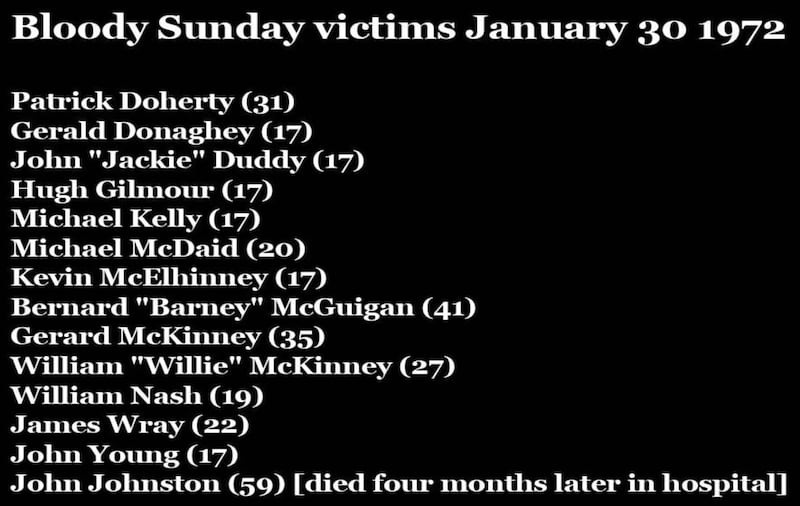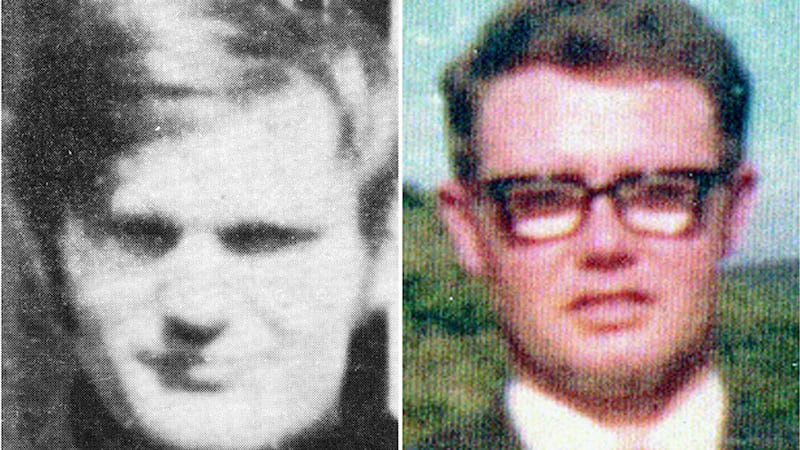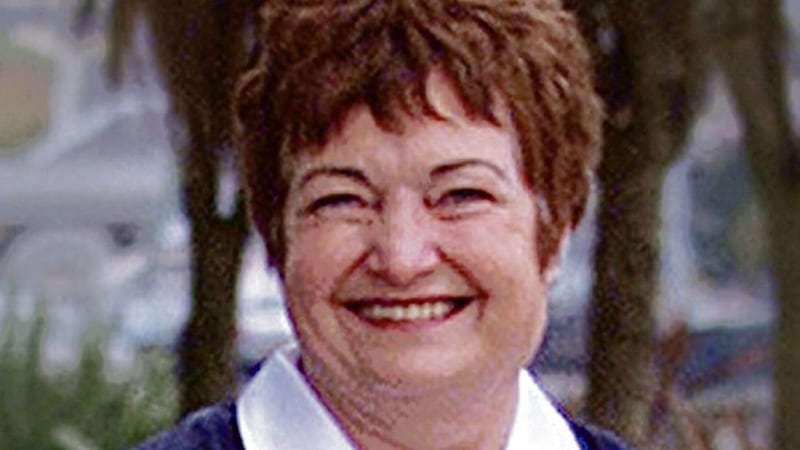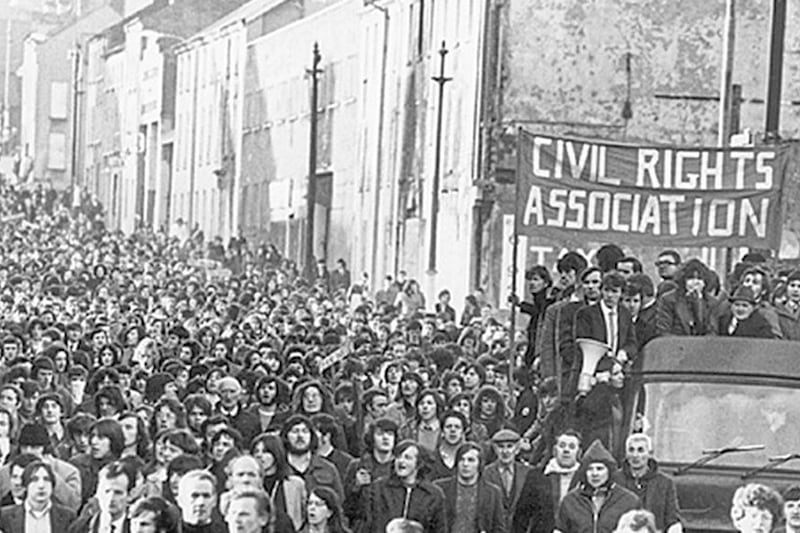ONE former British soldier is to be charged with murder in connection with the Bloody Sunday killings, the Public Prosecution Service has announced.
Soldier F will face prosecution for the murders of James Wray and William McKinney and the attempted murders of Joseph Friel, Michael Quinn, Joe Mahon and Patrick O’Donnell.
Director of Public Prosecutions Stephen Herron said that in relatilon to 16 other former soldiers and two former Official IRA men, the available evidence was insufficient to provide a reasonable prospect of conviction.
“In these circumstances the evidential test for prosecution is not met,” Mr Herron said.
He continued: "There has been a level of expectation around the prosecution decisions in light of the findings of the Bloody Sunday Inquiry. However, much of the material which was available for consideration by the Inquiry is not admissible in criminal proceedings, due to the strict rules of evidence that apply.
"I wish to clearly state that where a decision has been reached not to prosecute, this this is no way diminishes any finding by the Bloody Sunday Inquiry that those killed or injured were not posing a threat to any of the soldiers."
Read more:Who were James Wray and William McKinney?
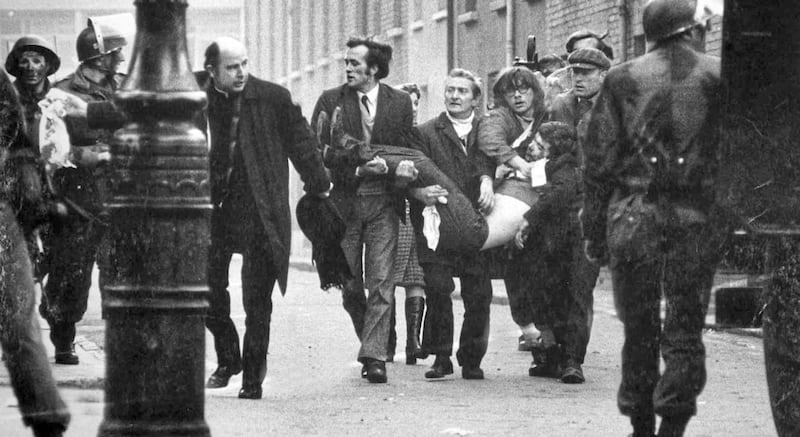
Listen to the PPS's statement in full:
Stephen Herron, from the NI Public Prosecution Service, said one soldier will face charges for #BloodySunday:
— BBC News NI (@BBCNewsNI) March 14, 2019
Read more here- https://t.co/T1zKyWgSzk pic.twitter.com/EgZrBEcCS6
Read more: Bloody Sunday troops would qualify for early release, says Karen Bradley
Relatives of the Bloody Sunday dead were informed of the PPS decision at a private meeting at Derry’s City Hotel this morning before the announcement was made public. The Bloody Sunday families symbolically had walked in unison from the Bogside to meet the PPS in what they called a Walk for Justice.
They were greeted with applause as they walked to the Guildhall to hold a press conference.
Read more: Bloody Sunday families say they are 'not finished yet' as only one soldier set to face prosecution
Bloody Sunday families arrive at the Guildhall after hearing that one soldier will face charges over the 1972 killings pic.twitter.com/Z5CWq4jw3a
— Q Radio News (@qnewsdesk) March 14, 2019
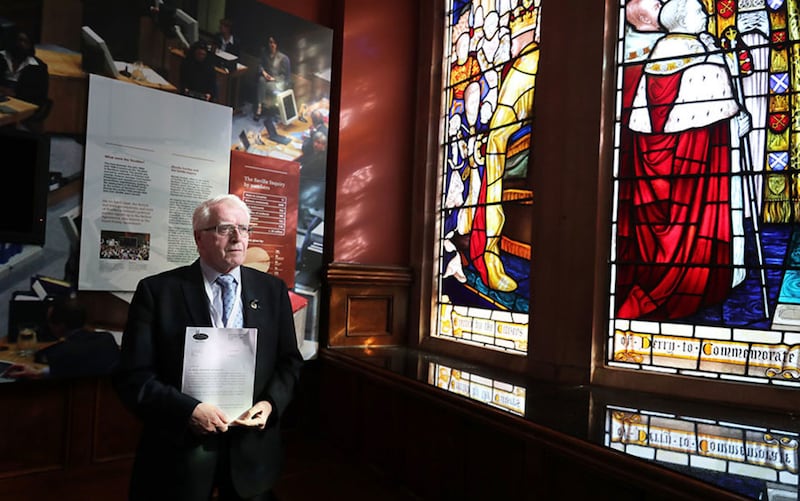
British Prime Minister Theresa May's official spokesman said: "Clearly, we are indebted to those who served with courage and distinction to bring peace to Northern Ireland.
"The welfare of our former service personnel is of the utmost importance and we will offer full legal and pastoral support to anyone affected by today's decision.
"We recognise the suffering of anyone who lost loved ones during the Troubles. As this is now an ongoing legal matter, it would be inappropriate to comment further."
Read more: Karen Bradley apologises after saying security force killings were 'not crimes'
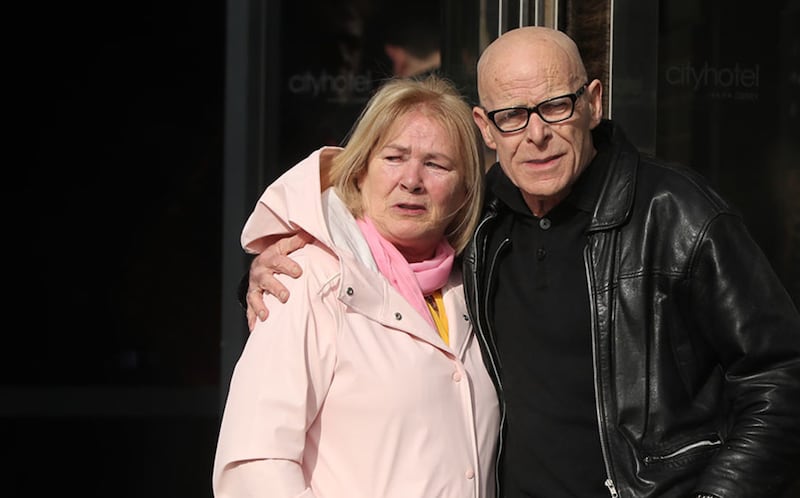
Linda Nash, whose youngest brother William Nash died on Bloody Sunday, with Eamonn McCann at the Guildhall. Picture by Niall Carson/PA Wire
MOD will pay Soldier F's legal costs
Defence Secretary Gavin Williamson confirmed the Ministry of Defence would support soldier F and pay the legal costs.
He said: "We are indebted to those soldiers who served with courage and distinction to bring peace to Northern Ireland.
"The welfare of our former service personnel is of the utmost importance and we will offer full legal and pastoral support to the individual affected by today's decision. This includes funding all his legal costs and providing welfare support.
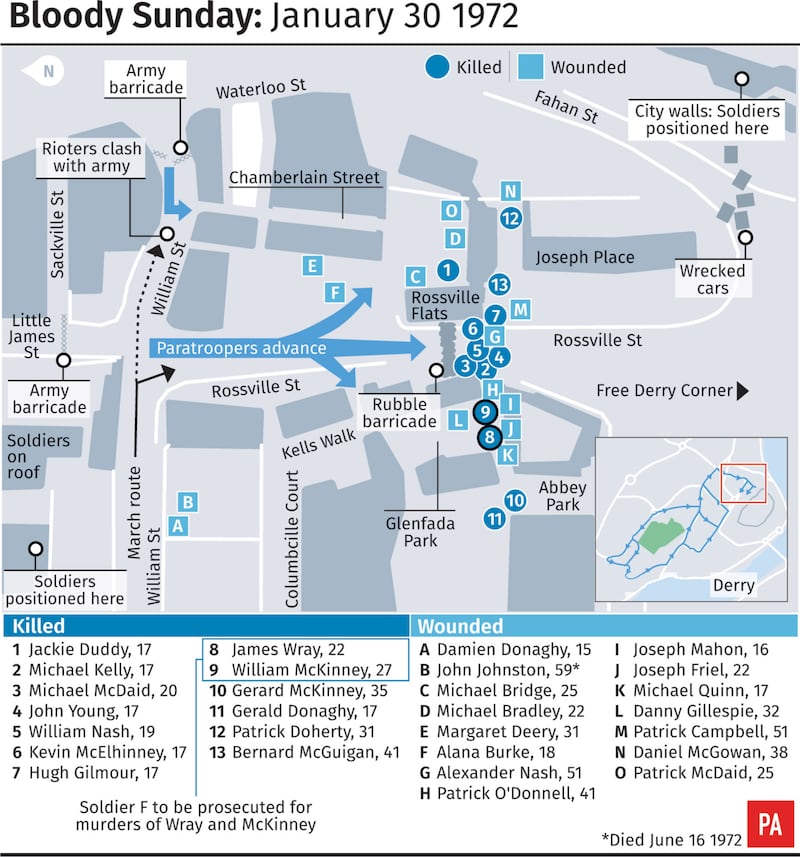
"The Ministry of Defence is working across government to drive through a new package of safeguards to ensure our armed forces are not unfairly treated.
"And the government will urgently reform the system for dealing with legacy issues. Our serving and former personnel cannot live in constant fear of prosecution."
Read more:
- Bloody Sunday families say they are 'not finished yet' as only one soldier set to face prosecution
- Bloody Sunday families call for investigation into British defence secretary Gavin Williamson's remarks
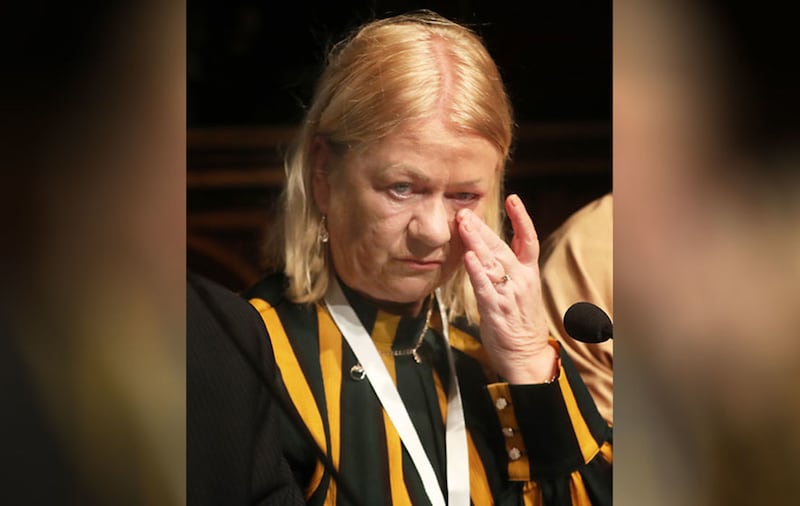
Chain of command
Derry Presbyterian minister David Latimer, who forged a friendship with Martin McGuinness and who has served as an army chaplain, said prosecutors should "move up the chain of command", up to and including the British defence secretary.
He told BBC Radio Ulster that foot soldiers "are not required to make decisions, they are there to obey orders".
"I'd be wanting... to move up the chain of command because there were decisions taken and there are senior figures who were involved in those decisions and who I think have to really have an opportunity to express the journey they were on and the outcomes that resulted which has brought pain and heartbreak and sorrow."
Dublin government reaction
Fianna Fáil leader Micheál Martin said many families would be disappointed by the PPS decision "but they continue to show great dignity".
He said it was "crucial" legacy issues are dealt with by the Irish and British governments.
“It is clear from what Mr Stephen Herron said that the PPS had difficulties considering evidence that was not admissible due to the strict rules and he also added that the rules on probability are greater than standard criminal cases. This is why other mechanisms can assist the families if both governments could agree to establish them."
Every civilian who died or was injured on Bloody Sunday was an innocent victim who posed no danger to anyone. My thoughts are with all of their families right now. A decision has been made today to pursue a prosecution and it is very important that no one prejudice that process.
— Simon Coveney (@simoncoveney) March 14, 2019
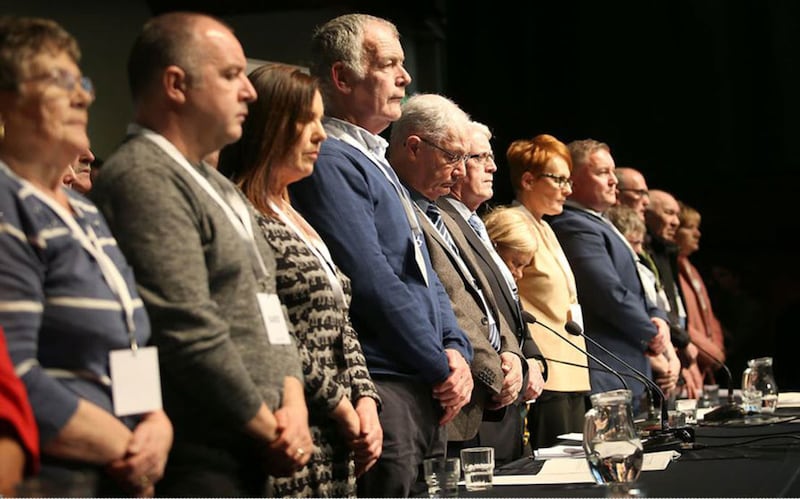
Amnesty International
Grainne Teggart from Amnesty said the Bloody Sunday campaign "should be proud of their mutual support and solidarity over five difficult decades".
“Today is a stark reminder that victims have long been paying the price for the failure of government to effectively deal with the past. We call on the UK government to ensure there are no barriers to justice and make clear there will be no amnesty for human rights abuses, including those committed by security forces.
“All victims of human rights violations and abuses from Northern Ireland’s conflict have a right to an independent investigation, with the possibility of prosecutions to follow where the evidence leads. To remove this recourse would be a betrayal of victims’ fundamental right to justice.”
Saville Inquiry
The PPS announcement followed a nine-year police investigation into the Bloody Sunday killings. Thirteen men were shot dead by British paratroopers while taking part in a Civil Rights march in Derry on January 30 1972 in protest against internment without trial which was introduced the previous August. A 14th victim, John Johnston, died later from his injuries.
The police investigation was launched after the conclusion of the Saville Inquiry into Bloody Sunday. Police gathered evidence in connection with 18 former British paratroopers as well as the Official IRA members who were given the ciphers OIRA 1 and OIRA 2. One of the 18 soldiers, known as Soldier N, passed away last year.
Following one of the longest inquiries in British legal history, the Saville Inquiry concluded that all of those killed and injured were innocent.
Lord Saville also found that there had been a loss of shot discipline by soldiers. The tribunal criticised a number of the soldiers present in the Bogside on Bloody Sunday as well as their commanding officer, Lieutenant Colonel Derek Wilford, who, the inquiry said, disobeyed an order not to conduct a running operation in the Bogside.
On the same day as Lord Saville’s findings were made public, then British prime minister David Cameron apologised for the actions of the soldiers, describing the shootings as “unjustified and unjustifiable”.
In 1992, the Bloody Sunday families launched a campaign for a new inquiry. The campaign demanded that the 1972 Widgery Tribunal findings be overturned, the dead and injured be declared innocent and the soldiers responsible be prosecuted. In 1998, the prime minister established the new inquiry under Lord Saville.
